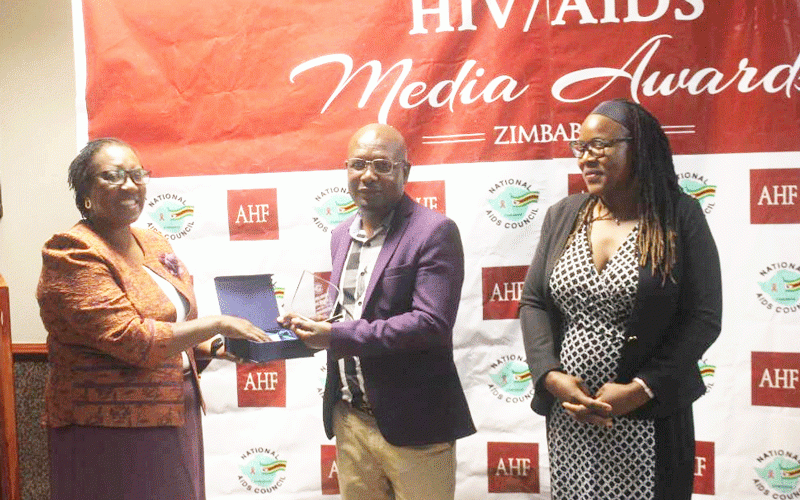
In November 2022, I travelled to Victoria Falls to cover the first International Conference on Aids and Sexually Transmitted Infections in Africa (ICASA) 2023 steering committee meeting, courtesy of the National Aids Council (NAC).
It was a two-day meeting, largely technical, with most sessions closed to journalists. There wasn’t much for us to cover, yet my colleague and I had travelled more than 880 kilometres to the resort town.
Determined not to return empty-handed, I squeezed whatever information I could gather on the first day and managed to file a story that was published the following day.
As soon as it went live, I shared the link with colleagues at NAC, who had actually bankrolled our trip. I expected a pat on the back for filing something under difficult circumstances.
But the late Medelina Dube — or Mai Dube, as many fondly called her — saw it differently.
She whispered to one of her subordinates, questioning the wording in my article: “The writer says we are to host a symposium. Is it so? Is ICASA a symposium? Are we not the ones funding these journalists?”
That was Mai Dube for you. She was meticulous, even exacting, about how the HIV story was communicated. For her, language was never just language — it was a tool that could either empower or stigmatise.
She believed deeply that the way HIV was framed in the media had a direct impact on public perception, stigma, and the dignity of those affected.
- NAC director of communications Medelina Dube dies
- ‘Dube, a giant in the fight against HIV’
- OBITUARY: Celebrating the life of Medelina Dube
Keep Reading
If there was one thing that could truly annoy Mai Dube, it was careless or stigmatising language. Words like “hooker” or “prostitute” were simply not part of her vocabulary. She advocated for sensitive, accurate, and respectful communication, holding journalists and communicators to the highest standards.
This encounter remains etched in my memory, not as a reprimand, but as a lesson in precision, responsibility, and respect in storytelling.
That was the mark she left on so many of us in the media — a relentless push to communicate the HIV story with care, clarity, and humanity.
The NAC family, the media fraternity, and the nation at large are mourning the passing of Mai Dube, a distinguished communicator whose voice, vision, and passion shaped Zimbabwe’s HIV response for over two decades.
Mai Dube passed away last Tuesday and she was laid to rest last Friday at Greendale Cemetery in Harare.
She was 64.
For 21 years, Mai Dube served as NAC’s communications director, a role in which she became a central figure in ensuring that life-saving information on HIV and Aids reached communities across the country.
Through her strategic communication, tireless advocacy, and deep empathy, she helped influence public attitudes, shape policy, and strengthen Zimbabwe’s national HIV response.
Colleagues and partners remember her as a passionate professional, visionary leader, and compassionate mentor, who engaged with communities, policymakers, media practitioners and regional partners with warmth and professionalism.
“She was a people-person, a communicator in the truest sense — someone who believed that the right message, delivered the right way, could save lives,” Freeman Dube, who worked with Mai Dube at NAC for close two decades, said.
Mai Dube’s career was marked by ground-breaking achievements that transcended institutional boundaries.
One of the defining highlights of her legacy was her instrumental role in bringing the ICASA to Zimbabwe — first in 2015 and again in 2023.
Through her strategic engagement with policymakers, including Members of Parliament, she influenced motions in the august house that led to critical legislative changes in the HIV response.
She championed the power of media as a force for social change, building strong partnerships between NAC and both public and private media houses.
She initiated media workshops, field tours and established the HIV and Media Awards, platforms that not only informed, but also inspired excellence in HIV and Aids reporting.
“She understood that effective communication is as important as medicine in fighting HIV. Her belief in media as an ally never wavered,” said a fellow communications practitioner.
Before joining NAC, Mai Dube built a distinguished career at the Zimbabwe Broadcasting Corporation, where she served from 1987 to 2001.
Rising through the ranks from producer/presenter to head of radio services, she became a respected broadcaster, remembered for programmes such as Mari Hairari and Kukosha Kwehutano.
She also worked with the Women’s Action Group as programmes manager for communications between 2002 and 2004, further cementing her commitment to advancing women’s voices and health issues.
Her leadership extended beyond Zimbabwe’s borders. She served as a board member of Panos Institute Southern Africa, contributing her expertise to regional communication initiatives.
Throughout her career, Mai Dube was a tireless advocate for strengthening the country’s fight against HIV and Aids through strategic communication, media engagement, and policy influence.
Her work touched communities, media houses, and decision-making spaces, leaving behind a legacy of resilience and progress.
As the NAC family and the nation bid farewell, her impact continues to resonate in the bridges she built between policy, media and public health.
Mai Dube is survived by four children and seven grandchildren.
Her voice may be silent, but the echo of her work will be heard in Zimbabwe’s HIV response for generations to come.











